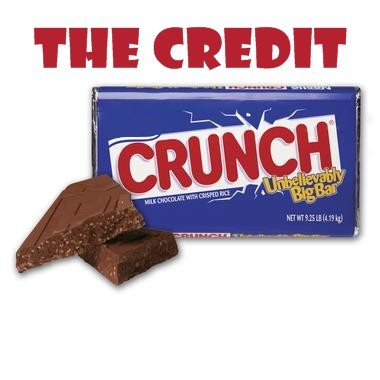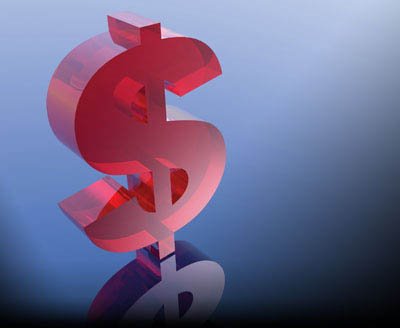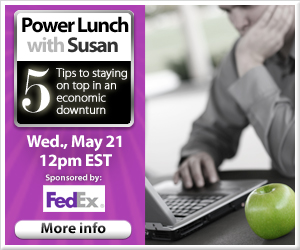
Article Contributed by Andy Lax
If you are a business owner, you have probably felt the pinch – if not a full smack down – from today’s faltering economy. Even more distressing, the situation may become worse before we turn the economic corner.
In a recent Washingtonpost.com article Retailers Report a Crisis in All Aisles, it was noted that retailers posted the worst November sales in 30 years according to the International Council of Shopping Centers. In fact, retail sales dropped 2.7% as compared to November of last year.
What is the impetus behind lagging sales? Simply, consumers are scaling back on their credit card spending. This is due primarily to:
- Tightening of credit card lending (causing a 5% drop in consumer spending)
- Recent increases in credit card interest rates and reduced credit limits
- Consumers maxed on their credit cards or buried under credit card debt
- Future economic uncertainty causing consumer frugality
In its 2004 – 2006 heyday, credit card spending enjoyed double-digit growth. However, as the saying goes, “what comes up must come down” and in 2007, annual growth dropped considerably to 8%. 2009 is not expected to fair any better with credit card spending estimated to rise a meager 3.3%.
The Domino Effect
Decreased consumer spending is causing a disastrous domino effect that is causing a tremendous strain on some retailers. In Retailers Report a Crisis in All Aisles, it was noted that retailers who have relied on consumers’ easy access to credit to purchase high-end merchandise such as flat screen TVs are faltering under the weight of decreased credit card spending.
The plight of Circuit City was placed under the spotlight to magnify the problem caused by consumers foregoing credit card use. When viewing the domino effect, the first domino to fall was consumer sales, followed by decreased inventory, as vendors tightened lending out of fear the company would not have enough incoming revenue to make payments. Decreased inventory further dissuaded shoppers from pulling out their plastic. This factor decreased sales even more, toppling yet another domino.
The New York Stock Exchange stopped listing Circuit City shares Dec. 15th as they nose-dived to an abysmal 19 cents. This is unfortunately a distressing “sign of the times” and could be in store (no pun intended) for other well known retailers.
On a brighter note, the Federal Reserve is in the process of instituting a program, which may assist retailers reeling from the current credit card crunch. It is in the process of buying an estimated $200 billion in securities backed by credit card, automobile and student loans in an effort to fuel markets running on empty.
Business Survival Training 101
Regardless if you head a large, medium, small or home-based business, your primary concern no doubt is to ensure your company survives and hopefully thrives during today’s economic downturn.
Instead of becoming discouraged, try to view the current credit card crunch in a more positive light. It has been estimated that the average credit card debt per household is $6,528 – an increase of an astounding 138% over the last 20 years!
Can a mountain of credit card debt and the financial, emotional and physical strain that goes along with it be considered healthy? Many consumers are now forced to live within their means, which consumer advocates believe to be a good thing.
You are probably wondering how this can possibly benefit your business. Although there will be challenges, it essentially boils down to learning how to adjust to the new reality of decreased consumer spending.
Although consumers are currently using credit cards less, it is still imperative to allow for this option. Credit cards remain the preferred mode of payment for most individuals and accepting plastic is absolutely essential when selling your goods or services online or offline.
If you are not currently accepting credit cards, but wish to do so, make certain to do your homework before choosing a merchant account provider (MAP), necessary when accepting plastic for purchases. Make certain to compare and contrast fee structures offered by numberous MAPs to locate one most compatible with your business needs and offers the best “bang for your buck”.
If you already have a merchant account, go over your statements with a fine toothcomb to pinpoint areas where you could potentially save money. Speak with your MAP to see if your account is still in step with your business. Are there areas where certain fees could be decreased?
There is also no harm in shopping around. Think about how many times you have done just that when looking for a better deal with your car insurance on sites like this for example. Is there a MAP offering better terms than what you currently receive? Even if your present merchant account has an early termination fee, you may discover that switching to another MAP will save you money in the long run.
In today’s stunted economy, it is more important than ever to be creative and devise methods to increase the value of your goods or services. One sure fire way to do so is to reduce your overall operational expenses. The money you save could then be passed onto your customers/clients in the form of buyer-friendly prices – sure to give you a leading edge over your competitors.
About the Author
Andy Lax has worked in the credit card processing industry for over five years and is now an Account Manager at IntelliCollect, a merchant account provider that enables business owners to accept credit cards and electronic checks.




